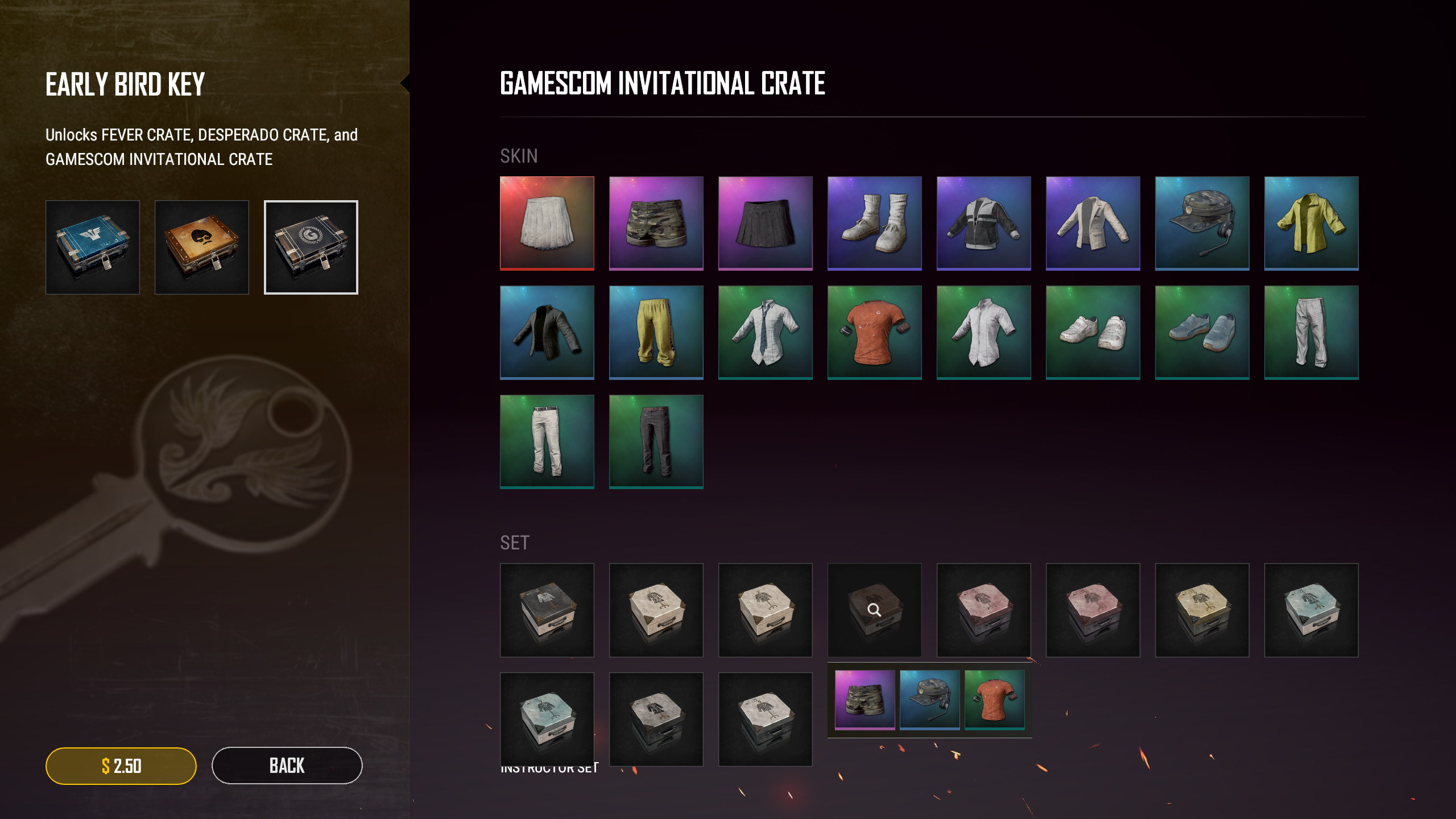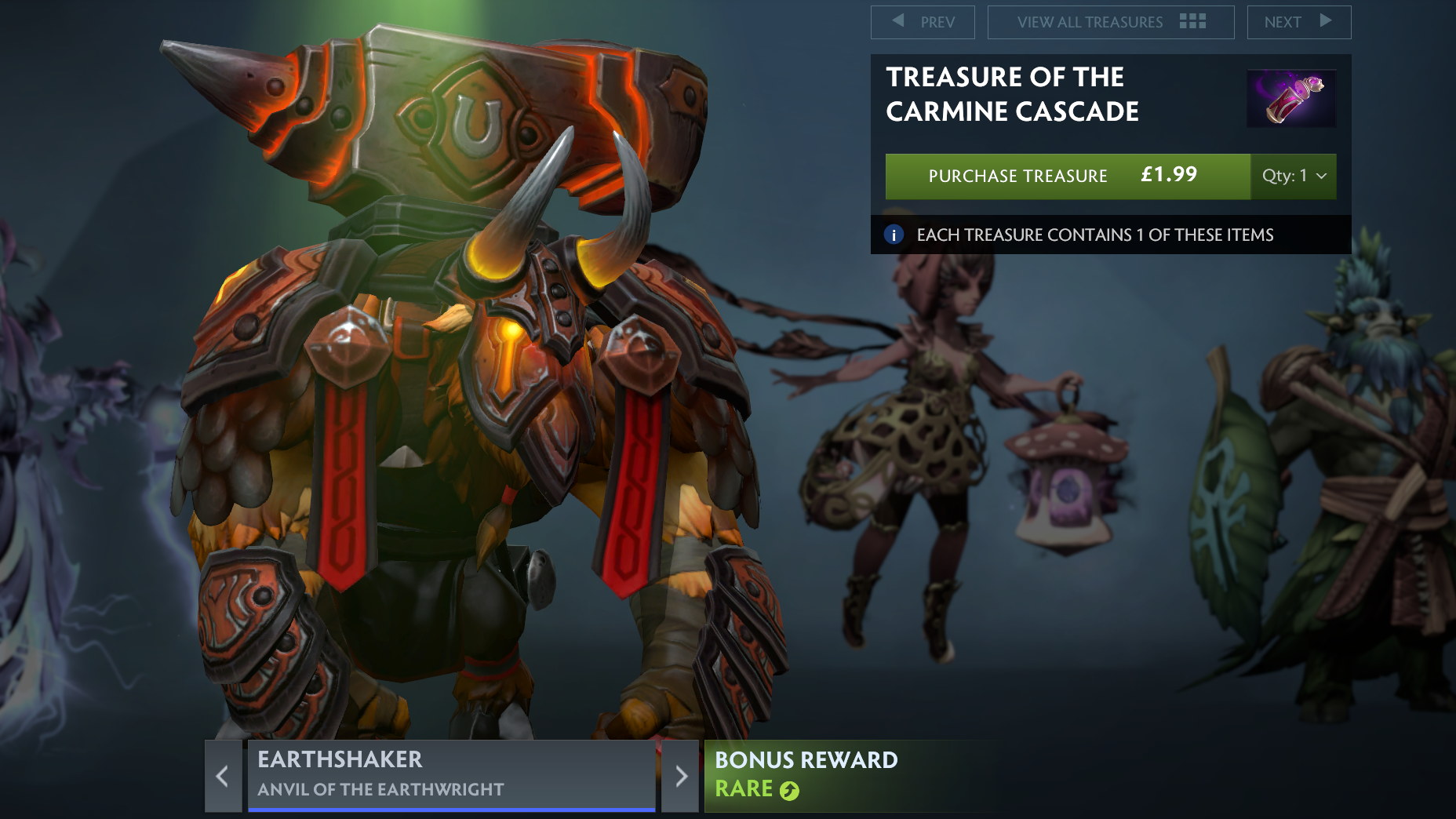
Several video games business associations have reacted to the information that the USA’s Federal Trade Commission (FTC) are planning to investigate loot boxes over considerations about potential affect on kids. America’s Entertainment Software Association (ESA), whose duties embrace working the E3 games present, have repeated their stance that loot packing containers “can enhance the experience” and aren’t playing they usually’re tremendous okay simply go away it. The International Game Developers Association (IGDA), alternatively, have stated it’s time for the business to step up and self-regulate earlier than extra governments follow Belgium and limit loot packing containers by legislation.
On Tuesday, throughout a session of quizzing the chair of the FTC and fellow commissioners, Senator Maggie Hassan implored the goverment company “to investigate [loot box] mechanisms, to ensure that children are being adequately protected, and to educate parents about potential addiction or other negative impacts of these games.” To which all of the FTC of us stated yeah, we’ll do this.
“Loot boxes are one way that players can enhance the experience that video games offer,” an ESA consultant responded in an announcement to GamesIndustry.biz. “Contrary to assertions, loot boxes are not gambling. They have no real-world value, players always receive something that enhances their experience, and they are entirely optional to purchase. They can enhance the experience for those who choose to use them, but have no impact on those who do not.”
That final sentence, amongst others, is wrong. Loot packing containers aren’t a impartial presence. Progression methods weighted with sufficient grind to make shopping for loot packing containers fascinating suck for individuals who don’t pay for them. Even loot packing containers strictly containing beauty gadgets make the expertise worse for individuals who don’t use them, as they will really feel envious of parents who’ve cooler stuff simply because they paid additional. The presence of loot packing containers could make many really feel pressured – and fleeced, in games which aren’t free-to-play.
The essential motion in response to loot field considerations from the ESA and its Entertainment Software Ratings Board (ESRB) has been to begin slapping a “In-Game Purchases” label on the bodily packing containers of games which have, y’know, in-game purchases. It’s obscure to the purpose of meaninglessness and evasiveness in an period when it’s uncommon for boxed games to not have some type of in-game buy.
The ESA defused the danger of a authorities crackdown through the video game violence ethical panic of the 1990s by forming the ESRB to self-regulate the business. Sticking labels on video game packing containers doesn’t appear to have carried out the trick this time, particularly contemplating lots of the regarding games are downloaded to telephones.
Jen MacLean, the manager director of IGDA, takes a bolder stance in a blog post. She says the FTC’s consideration “should be a clear wakeup call to the game development industry that we must address how we use loot boxes, especially when they’re in games played by children.”
She laid out three steps she believes publishers ought to take: “affirm an industry commitment to not market loot boxes to children”; disclose the percentages of getting issues in loot packing containers (a observe already required by legislation in China); and launch an schooling marketing campaign to boost consciousness of parental controls in games.
“By not taking significant action as an industry and global game developer community to self-regulate how loot boxes are used, we run the very real risk that governments around the world will take that action for us, and perhaps create significantly restrictive laws that could impact any random reward elements in games,” MacLean stated.
With mainstream conversations round loot packing containers more and more specializing in how they could have an effect on kids, the truth that the legal guidelines of most international locations don’t deem them playing could also be rising much less related. Protecting our valuable kids from corrupting influences is all the time a well-liked motivator, way over whether or not one thing sucks in a video game.
Neither the ESA nor IGDA are searching for us, to be clear. They’re business associations fashioned to help and shield the business. They don’t care that loot packing containers are irritating, intrusive, manipulative, and exploitative. They don’t care that they make games worse. Their concern is that the business isn’t harmed by authorities laws, so it may possibly hold doing issues that kinda suck however not sufficient for The Man to get entangled. That may find yourself working in our favour, with even self-imposed restrictions making loot packing containers much less interesting for publishers, however that isn’t their intent.




